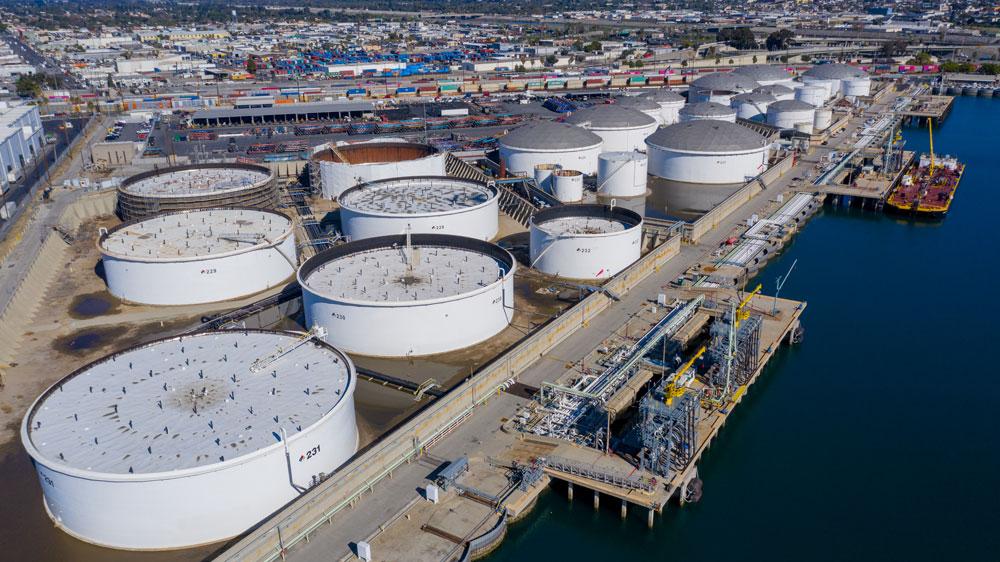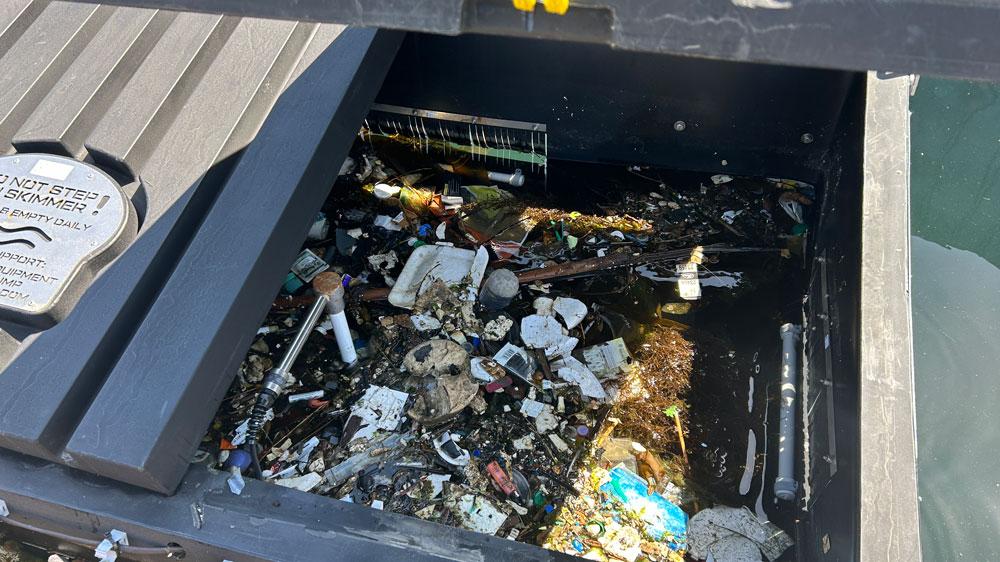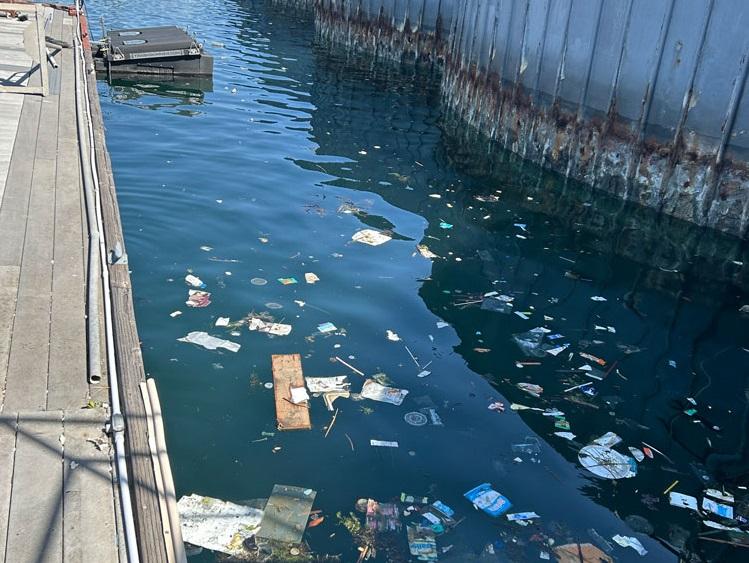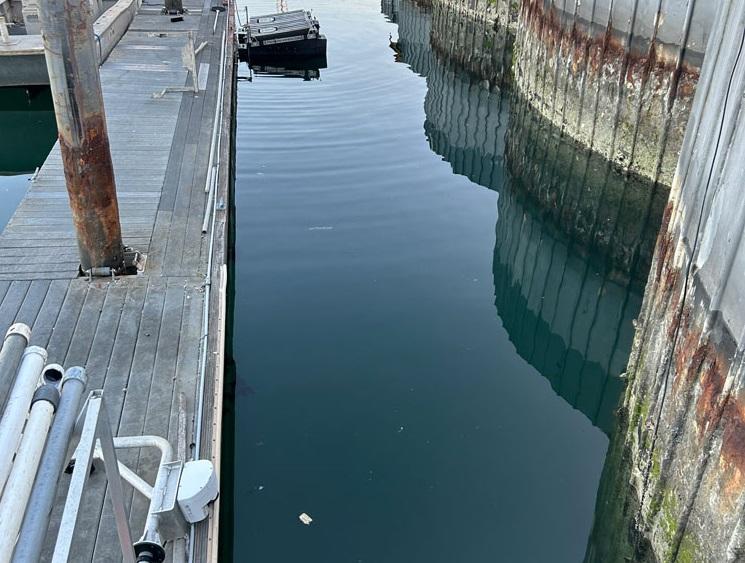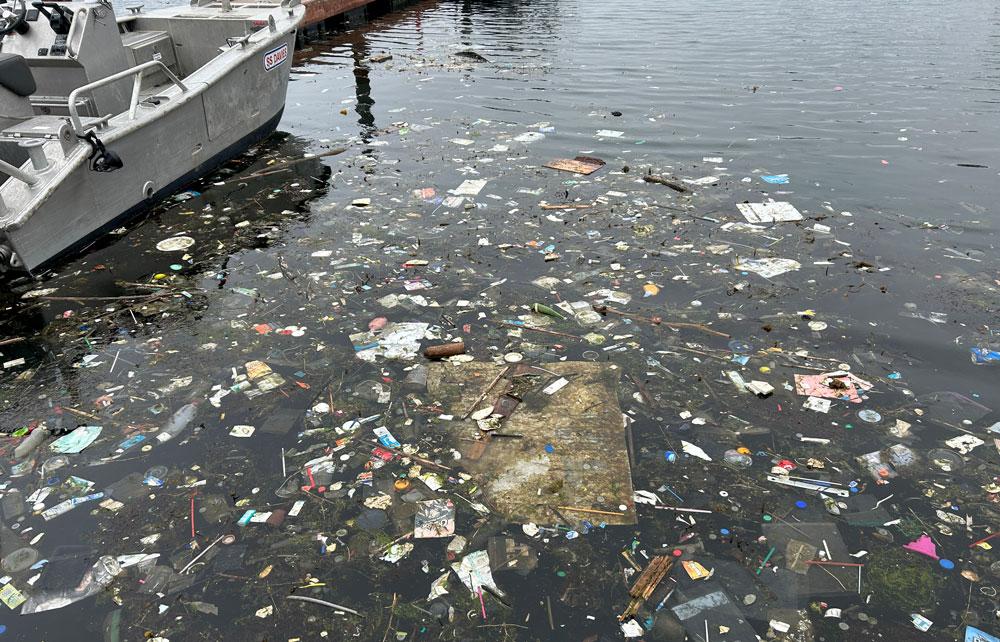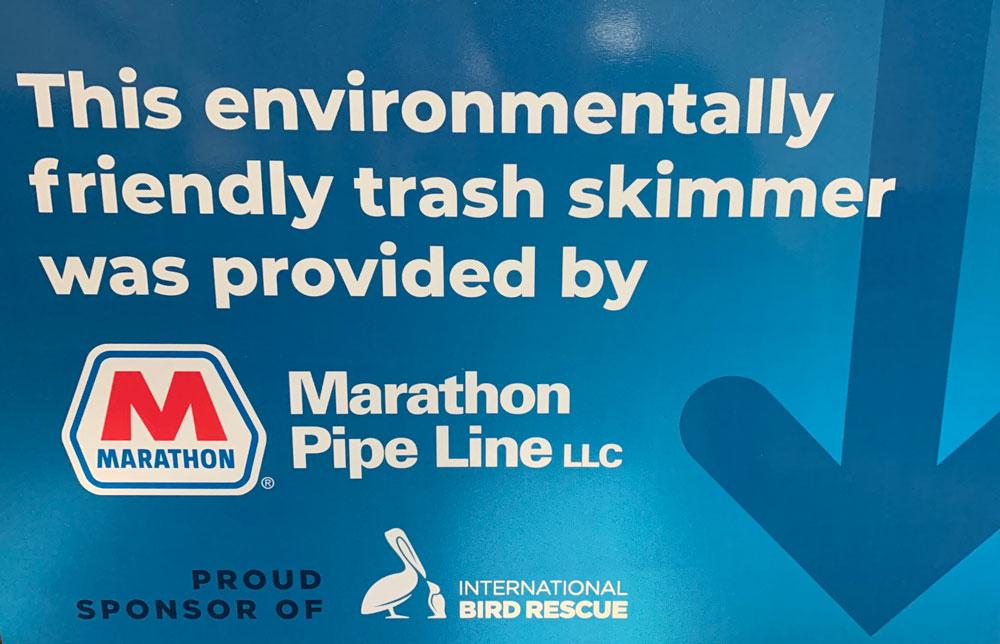Partnering for a Cleaner Port of Long Beach
- The Port of Long Beach, California, is supporting an effort to reduce debris in the port with devices that collect trash from the surface of the water.
- Marathon Pipe Line installed two electric trash skimmers that continuously draw in water and trap debris.
- The skimmers are collecting roughly 500 pounds of trash every two weeks, and the port has agreed to handle disposal.
The Port of Long Beach, California, is collaborating with a tenant on a 24/7 approach to collecting debris in the water. Marathon Pipe Line (MPL), a component of Marathon Petroleum’s midstream segment, MPLX, recently installed two electric trash skimmers at its dock in Terminal 2, and the port agreed to pick up the trash for disposal at a reduced cost.
“The skimmers are attached to the dock. They float and go up and down with the tide, using a system similar to a swimming pool skimmer to suck in trash,” said Marathon Petroleum Advanced Emergency Preparedness Professional Court Hemerick.
The skimmers have taken MPL’s trash collection efforts at the port to new heights. In the past, employee volunteers would conduct an annual trash cleanup around the dock in Terminal 2. Teams would spend hours manually gathering debris, accumulating as much as 500 pounds of trash during each year’s effort. The skimmers are now gathering more than 500 pounds every two weeks.
Each device has a 120-volt motor that allows for continuous operation, moving more than 300 gallons of water a minute. Floating debris is retained in a bin that is six-feet wide and four-feet deep.
“By helping to make the port cleaner, we know we are eliminating potential hazards for aquatic birds in particular. This illustrates our company’s commitment to environmental stewardship and making investments that help protect biodiversity.”
“The skimmers can each hold roughly 120 to 130 pounds of trash. Currently, employee volunteers from MPL engineering, maintenance and operations, as well as our emergency preparedness group, are helping manage this effort,” Hemerick said. “It takes one to two people to scoop out the trash into bags, using nets, and then dispose of the bags in a dumpster.”
The skimmers build on MPL’s existing sustainability initiatives in California, which include financial support for International Bird Rescue. This global conservation nonprofit has care centers in Los Angeles and San Francisco that help respond to wildlife emergencies, providing day-to-day care for aquatic birds that are injured, sick, abused or orphaned.
“Reducing debris in the water goes hand-in-hand with wildlife conservation,” said MPL Region Manager Tim Hayes. “By helping to make the port cleaner, we know we are eliminating potential hazards for aquatic birds in particular. This illustrates our company’s commitment to environmental stewardship and making investments that help protect biodiversity.”

